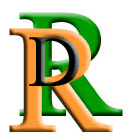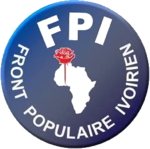| |||
| |||
 |
|---|
Presidential elections are due to be held in Ivory Coast in October 2025. [1]
| |||
| |||
 |
|---|
Presidential elections are due to be held in Ivory Coast in October 2025. [1]
The President of Ivory Coast is elected by absolute majority vote through a two-round system to serve a 5-year term. [2]

The politics of Ivory Coast takes place in a framework of a presidential representative democratic republic, whereby the President of Ivory Coast is both head of state and head of government, and of a multi-party system. Executive power is exercised by the President and the Government. Legislative power is vested in both the government and parliament.

Koudou Laurent Gbagbo is an Ivorian politician who was the president of Côte d'Ivoire from 2000 until his arrest in April 2011. A historian, Gbagbo was imprisoned in the early 1970s and again in the early 1990s, and he lived in exile in France during much of the 1980s as a result of his union activism. Gbagbo founded the Ivorian Popular Front (FPI) in 1982 and ran unsuccessfully for president against Félix Houphouët-Boigny at the start of multi-party politics in 1990. He won a seat in the National Assembly of Côte d'Ivoire in 1990.

Pascal Affi N'Guessan is an Ivorian politician who is the President of the Ivorian Popular Front (FPI). He was the Prime Minister of the Ivory Coast from 27 October 2000 to 10 February 2003.

The Rally of the Republicans is a liberal party in Ivory Coast. The party is the country's governing party; the party's leader, Alassane Ouattara, is the current President of Ivory Coast.

Alassane Dramane Ouattara is an Ivorian politician and economist who has been President of Ivory Coast since 2010. An economist by profession, he worked for the International Monetary Fund (IMF) and the Central Bank of West African States, and was the Prime Minister of Côte d'Ivoire from November 1990 to December 1993, appointed to that post by then-President Félix Houphouët-Boigny. Ouattara became the President of the Rally of the Republicans (RDR), an Ivorian political party, in 1999.

The Ivorian Popular Front is a centre-left, democratic socialist and social democratic political party in Ivory Coast.

Simone Ehivet Gbagbo is an Ivorian politician. She is the President of the Parliamentary Group of the Ivorian Popular Front (FPI) and is a Vice-President of the FPI. As the wife of Laurent Gbagbo, the President of Côte d'Ivoire from 2000 to 2011, she was also First Lady of Ivory Coast prior to their arrest by pro-Ouattara forces.

Presidential elections were held in Ivory Coast in 2010. The first round was held on 31 October, and a second round, in which President Laurent Gbagbo faced opposition leader Alassane Ouattara, was held on 28 November 2010. Originally scheduled to be held in 2005, the vote was delayed several times due to the Ivorian Civil War and difficulties involved in the organization and preparation of the elections. A peace agreement between the government and the former rebel New Forces was signed on 4 March 2007, and in late April 2009, it was announced that the elections would be held by 6 December 2009, and that the date would be announced shortly. On 15 May 2009, the date was announced to be 29 November 2009. On 11 November, the elections were postponed again due to delays in the electoral roll. It was announced on 3 December 2009 to be held in late February or early March 2010.

Parliamentary elections were held in Ivory Coast on 11 December 2011, after the presidential elections in late 2010. They followed a peace agreement between the government and the New Forces that was signed in March 2007. The Rally of the Republicans, the party of President Alassane Ouattara, won just under half the seats in the National Assembly.

The 1999 Ivorian coup d'état took place on 24 December 1999. It was the first coup d'état since the independence of Ivory Coast and led to the President Henri Konan Bédié being deposed.

The Second Ivorian Civil War broke out in March 2011 when the crisis in Ivory Coast escalated into full-scale military conflict between forces loyal to Laurent Gbagbo, the President of Ivory Coast since 2000, and supporters of the internationally recognised president-elect Alassane Ouattara. After months of unsuccessful negotiations and sporadic violence between supporters of the two sides, the crisis entered a critical stage as Ouattara's forces seized control of most of the country with the help of the UN, with Gbagbo entrenched in Abidjan, the country's largest city. International organizations have reported numerous instances of human rights violations by both sides, in particular in the city of Duékoué where Ouattara's forces killed hundreds of people. Overall casualties of the war are estimated around 3000. The UN and French forces took military action, with the stated objective to protect their forces and civilians. France's forces arrested Gbagbo at his residence on 11 April 2011.

United Nations Security Council Resolution 1975, adopted unanimously on March 30, 2011, after recalling previous resolutions on the situation in Côte d'Ivoire, including resolutions 1572 (2004), 1893 (2009), 1911 (2010), 1924 (2010), 1933 (2010), 1942 (2010), 1946 (2010), 1951 (2010), 1962 (2010), 1967 (2011) and 1968 (2011), the Council demanded that Laurent Gbagbo step down as President and imposed sanctions on him and his close associates.
The following lists events that happened during 2010 in Ivory Coast.
The following lists events that happened during 2011 in Ivory Coast.

Presidential elections were held in Ivory Coast on 25 October 2015. Alassane Ouattara won a second term in a landslide victory over his closest rival Pascal Affi N'Guessan.
The Constitutional Council is a judicial body in the government of Ivory Coast that is patterned after the Constitutional Council of France. The Council was created by law in 1994 and began its operations in 1995. The seat of the Council is in Abidjan.

Presidential elections were held in Ivory Coast on 31 October 2020. Incumbent president Alassane Ouattara was re-elected with 95% of the vote amidst an opposition boycott.

Canada–Ivory Coast relations are the diplomatic relations between Canada and Ivory Coast. Both nations are members of the Organisation internationale de la Francophonie.
Events in the year 2020 in Ivory Coast.
This period in the history of Ivory Coast was affected by the end of the 33-year reign of Félix Houphouët-Boigny in 1993, as well as demographic change which had seen the Muslim population rise from 6% in 1922 to 38.6% in 1998, including a majority in the north of the country.